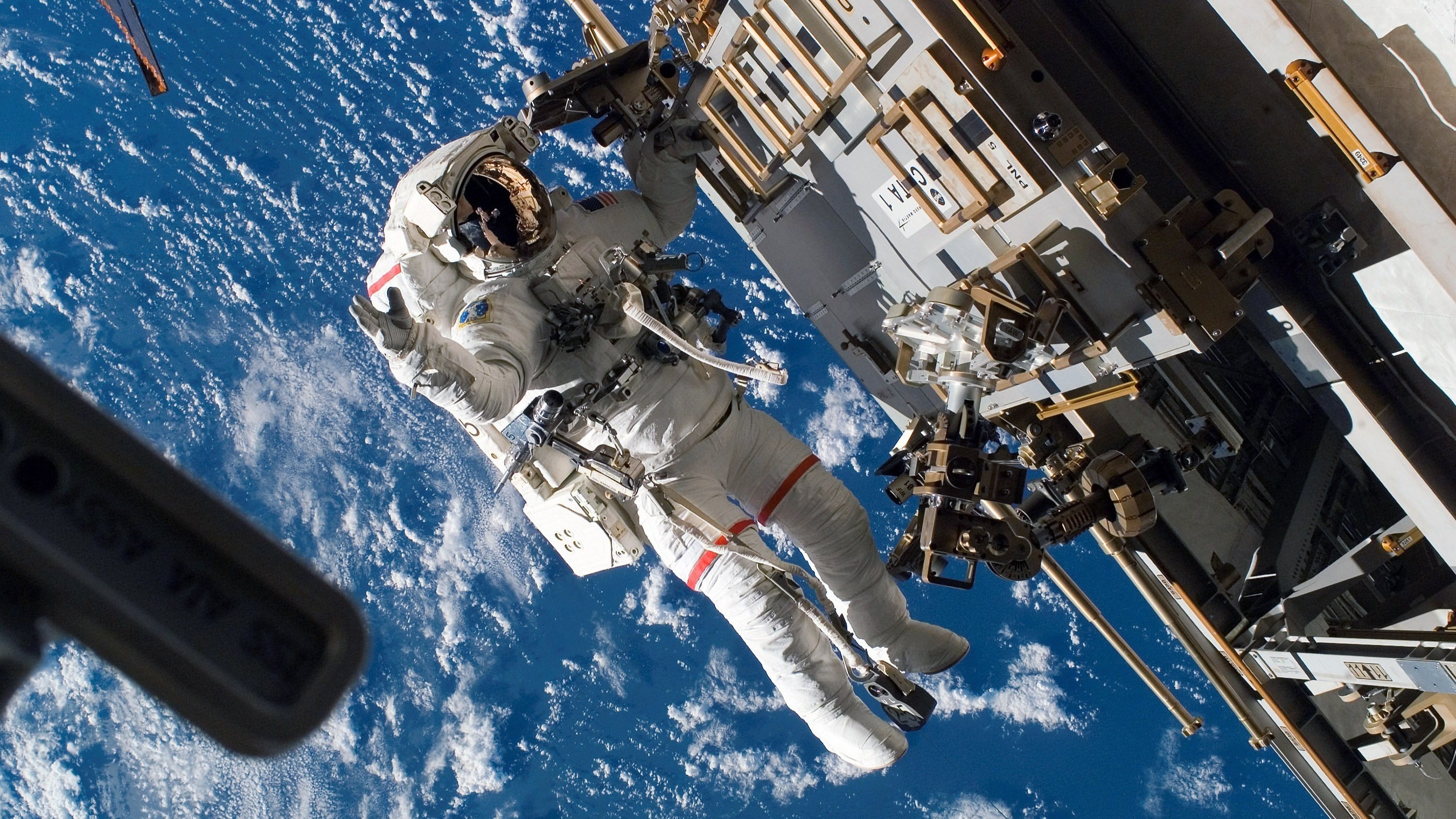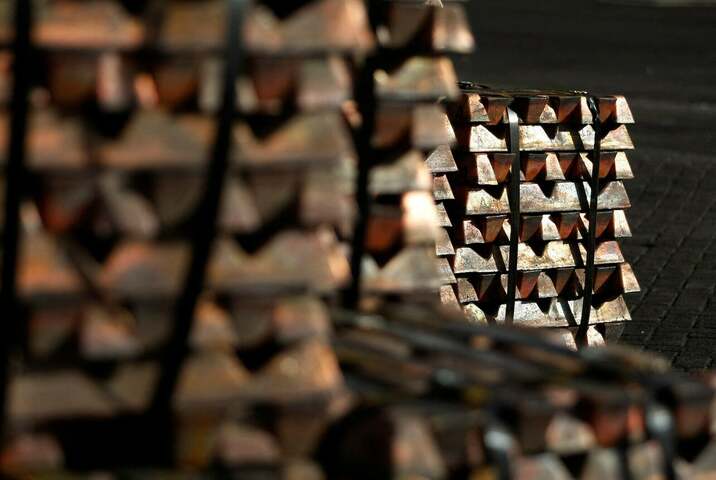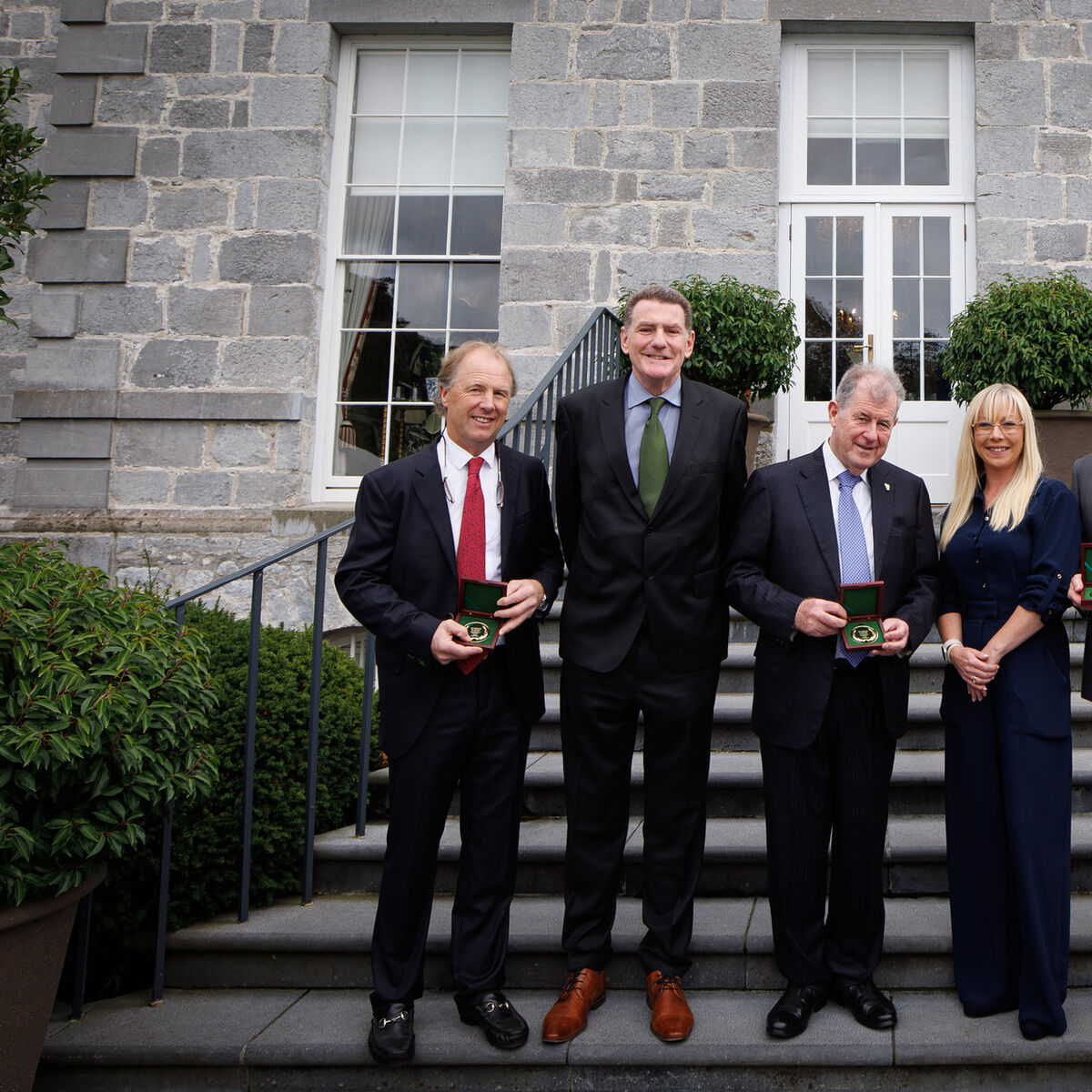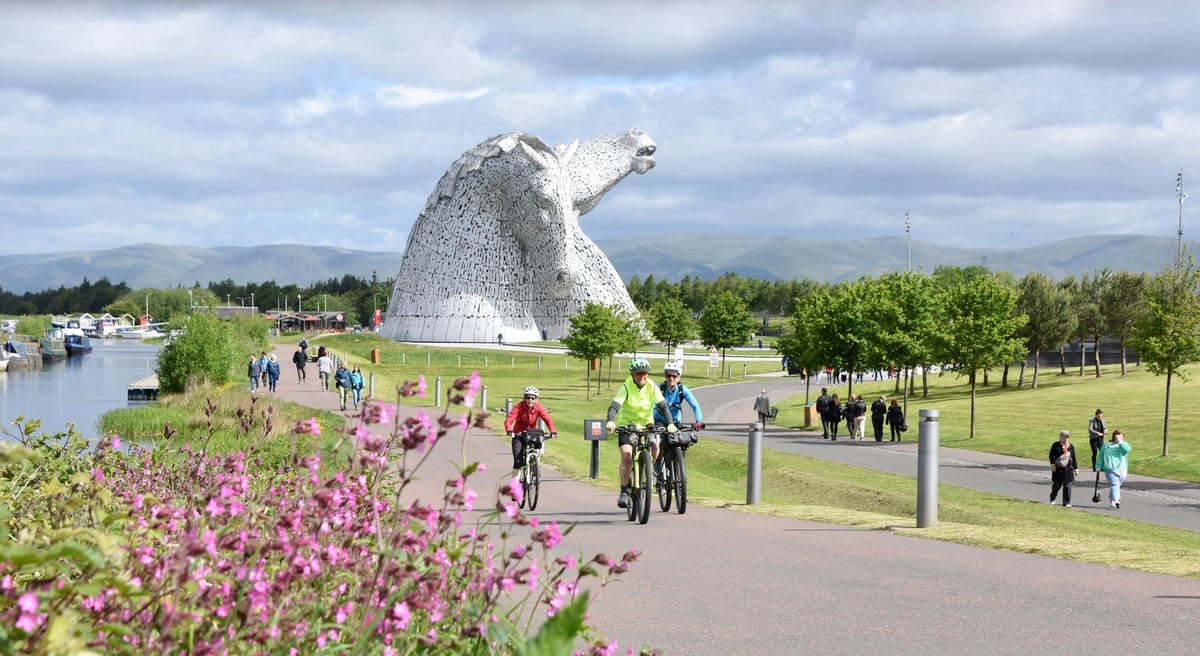By Patrick Pester
Copyright livescience

Skip to main content
Close main menu
Live Science
Sign up to our newsletter
View Profile
Search Live Science
Planet Earth
Archaeology
Physics & Math
Human Behavior
Science news
Life’s Little Mysteries
Science quizzes
Newsletters
Story archive
Bright orange shark discovered
Egyptian queen coin found in Jerusalem
Do humans and chimps share 99% DNA?
Comet 3I/ATLAS’s tail growing
Blood moon in photos
Don’t miss these
Space Exploration
Spacecraft carrying cannabis and human remains crashes into the ocean
Chemotherapy can make healthy blood cells ‘look old’
Planet Earth
Science news this week: A 400-year trip to Alpha Centauri and the malevolent AI that may make us consider it
Science news this week: A world first pig-to-human lung transplant, and SpaceX’s Starship nails a test flight
Space Exploration
Proposed spacecraft could carry up to 2,400 people on a one-way trip to the nearest star system, Alpha Centauri
Brain scans could reveal your true biological age
Special protection may help human eggs stay fresh as the body ages
Aging: What happens to the body as it gets older?
Space Exploration
Would you board a spacecraft that takes 400 years to reach Alpha Centauri?
Space Exploration
ChatGPT could pilot a spacecraft shockingly well, early tests find
Neuroscience
New pocket-size model of ALS ‘breathes and flows like human tissue’
Weight loss may ‘rejuvenate’ fat tissues, clearing away aged cells
Giant space ‘boulders’ unleashed by NASA’s DART mission aren’t behaving as expected, revealing hidden risks of deflecting asteroids
Space Exploration
Satellite coated in ultra-dark ‘Vantablack’ paint will launch into space next year to help combat major issue
Neuroscience
Can adults make new brain cells? New study may finally settle one of neuroscience’s greatest debates
Space Exploration
Human stem cells become more active in space — and that’s not a good thing
Patrick Pester
9 September 2025
Stem cells age faster and become functionally exhausted in low Earth orbit, making crewed long-duration space travel even more challenging.
When you purchase through links on our site, we may earn an affiliate commission. Here’s how it works.
Astronaut Rick Mastracchio on an EVA as part of Space Shuttle Endeavour’s mission to the International Space Station in 2007. This image is for illustrative purposes only.
(Image credit: Photo by NASA via Getty Images)
Human stem cells get worn out and age much faster in space, a new study has found, which is a problem for anyone hoping to take a long trip through our solar system.
Scientists used artificial intelligence (AI) to track changes to stem cells delivered by SpaceX resupply missions to the International Space Station (ISS). Up in space, the stem cells lost some of their ability to generate new cells, became more susceptible to DNA damage and aged faster, according to a statement released by the researchers.
The study’s findings, published Sep. 4 in the journal Cell Stem Cell, build on previous space health research that highlight the challenges of putting people in space for prolonged periods of time — something humanity would have to overcome if it wants to colonize other planets such as Mars.
“Space is the ultimate stress test for the human body,” study co-author Catriona Jamieson, the director of the Sanford Stem Cell Institute and professor of medicine at the University of California San Diego, said in the statement. “These findings are critically important because they show that the stressors of space — like microgravity and cosmic galactic radiation — can accelerate the molecular aging of blood stem cells.”
Related: ‘Why would you even want to go?’: Readers react to the hypothetical 400-year voyage to Alpha Centauri
You may like
Spacecraft carrying cannabis and human remains crashes into the ocean
Chemotherapy can make healthy blood cells ‘look old’
Science news this week: A 400-year trip to Alpha Centauri and the malevolent AI that may make us consider it
The human body is not built for space. Up there, our species is subjected to completely different environmental strains. Two notable, harm-causing stressors are the near-complete weightlessness of microgravity and cosmic radiation — tiny, subatomic particles that zoom through space.
Previous studies have documented that humans experience a variety of adverse health effects in space. For example, a 2022 study found that astronauts suffer decades of bone loss from spending more than six months in orbit; and scientists have even suggested that colonizing Mars may require some DNA tweaking to ensure that our bodies cope with life away from our home planet.
Sign up for the Live Science daily newsletter now
Get the world’s most fascinating discoveries delivered straight to your inbox.
Contact me with news and offers from other Future brandsReceive email from us on behalf of our trusted partners or sponsorsBy submitting your information you agree to the Terms & Conditions and Privacy Policy and are aged 16 or over.
In the new study, researchers looked at hematopoietic stem and progenitor cells, or HSPCs. These cells regulate immune system health and cancer immune surveillance. Previous work has shown that exposure to microgravity can impact immune and metabolic changes, but not how time in space affects the molecular integrity and functional capacity of HSPCs, according to the study.
The team acquired human cells from the bone marrow of consenting individuals undergoing hip replacement procedures before growing the cells in a nanobioreactor, a type of vessel that can facilitate biological reactions. The researchers carried out their experiment on Earth and on four missions to the ISS.
Using AI-powered imaging tools to monitor cell activity, the scientists noticed that cell changes in the space samples were similar to those seen in normal cell aging on Earth, yet they occurred at an accelerated rate. For example, the cells were more active than normal and were losing their ability to rest and recover. The researchers also observed more activity in part of the “dark genome” — poorly understood regions of the genome linked to stress responses and aging, according to the study.
RELATED STORIES
—Ghostly ‘spiral’ photobombs Perseid meteors over several US states — and experts are unsure what caused it
—Jim Lovell, commander of NASA’s Apollo 13 moon mission, dies at 97
—SpaceX launched disease-causing bacteria to the International Space Station
While the study’s findings paint an ominous picture for long-duration space travel, they do come with a silver lining: Damage seen in the cells began to reverse when they were placed in a young, healthy tissue environment. This recovery suggests that it may be possible to rejuvenate aging cells, according to the statement.
The cell changes and accelerated aging documented in the new study could help researchers better protect astronauts spending time in space, as well as people aging under normal conditions on Earth.
“Understanding these changes not only informs how we protect astronauts during long-duration missions but also helps us model human aging and diseases like cancer here on Earth,” Jamieson said. “This is essential knowledge as we enter a new era of commercial space travel and research in low earth orbit.”
international space station
Patrick Pester
Social Links Navigation
Trending News Writer
Patrick Pester is the trending news writer at Live Science. His work has appeared on other science websites, such as BBC Science Focus and Scientific American. Patrick retrained as a journalist after spending his early career working in zoos and wildlife conservation. He was awarded the Master’s Excellence Scholarship to study at Cardiff University where he completed a master’s degree in international journalism. He also has a second master’s degree in biodiversity, evolution and conservation in action from Middlesex University London. When he isn’t writing news, Patrick investigates the sale of human remains.
You must confirm your public display name before commenting
Please logout and then login again, you will then be prompted to enter your display name.
Spacecraft carrying cannabis and human remains crashes into the ocean
Chemotherapy can make healthy blood cells ‘look old’
Science news this week: A 400-year trip to Alpha Centauri and the malevolent AI that may make us consider it
Science news this week: A world first pig-to-human lung transplant, and SpaceX’s Starship nails a test flight
Proposed spacecraft could carry up to 2,400 people on a one-way trip to the nearest star system, Alpha Centauri
Brain scans could reveal your true biological age
Latest in Space Exploration
‘Why would you even want to go?’: Readers react to the hypothetical 400-year voyage to Alpha Centauri
Ghostly ‘spiral’ photobombs Perseid meteors over several US states — and experts are unsure what caused it
Would you board a spacecraft that takes 400 years to reach Alpha Centauri?
Jim Lovell, commander of NASA’s Apollo 13 moon mission, dies at 97
Proposed spacecraft could carry up to 2,400 people on a one-way trip to the nearest star system, Alpha Centauri
SpaceX just launched disease-causing bacteria to the International Space Station
Latest in News
Asteroid Apophis flyby will be ‘once in a millennium’ opportunity for skywatchers and scientists
NASA rover spots bizarre ‘turtle’ hiding among ancient rocks on Mars
Human stem cells become more active in space — and that’s not a good thing
Scientists create first-ever visible time crystals using light — and they could one day appear on $100 bills
Scientists are finally learning what’s inside mysterious ‘halo’ barrels submerged off Los Angeles
Gigantic ‘letter S’ spotted on the sun just before a ‘dark eruption’ hurls a fiery shadow at Earth
LATEST ARTICLES
NASA rover spots bizarre ‘turtle’ hiding among ancient rocks on Mars
Human stem cells become more active in space — and that’s not a good thing
Scientists create first-ever visible time crystals using light — and they could one day appear on $100 bills
Gigantic ‘letter S’ spotted on the sun just before a ‘dark eruption’ hurls a fiery shadow at Earth
How the mystery origins of hairy little Yakutian horses were uncovered in Siberia’s ‘gateway to the underworld’
Live Science is part of Future US Inc, an international media group and leading digital publisher. Visit our corporate site.
Contact Future’s experts
Terms and conditions
Privacy policy
Cookies policy
Accessibility Statement
Advertise with us
Web notifications
Editorial standards
How to pitch a story to us
Future US, Inc. Full 7th Floor, 130 West 42nd Street,
Please login or signup to comment
Please wait…



